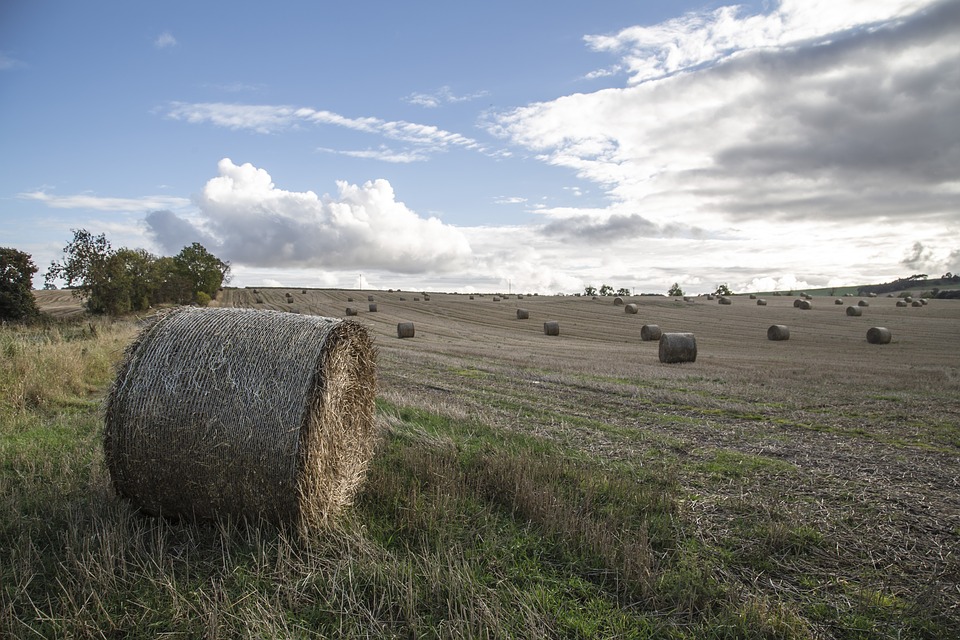Scottish farm business income at six year high
Incomes from commercial farms in Scotland have gone up in 2017-18, but the latest annual figures show agriculture is still dependent on farm subsidies.

The average Scottish farm income has risen 19 per cent to £35,400, the highest level over the last six years.
This upward trend from the previous year shows that the industry is continuing to recover from the low average income of £16,800 in 2015-16. Dairy farms experienced the largest increase of average income at £73,100.
This increase in income was largely due to a 22 per cent increase in the average price of milk, to £0.28 per litre.
The latest statistics published by the Chief Statistician this week also show the costs of raw materials to farms and the produce they sell both increased. Subsidy payments from the EU play an important role in farm incomes. Over 60 per cent of farms in the survey were making a loss without subsidy, with the average business making a loss of £7,400 without support.
Contract farming and diversification have helped offset losses from farming activity. Farms that had expanded beyond traditional agricultural work, such as renting out buildings or holidays homes and building small wind farms to generate electricity, had incomes that were around £19,600 higher compared to those that have not diversified.
However, for farms where diversification and contract farming opportunities are reduced, such as sheep farms and beef farms in Less Favoured Areas (LFA), they continue the historical trend of having the lowest incomes. For these farms subsidies play an important role and are estimated to be making a loss of £27,400 without support.
There was an increase in the percentage of farms that could pay unpaid labour more than the minimum agricultural wage (MAW). Incomes from 60 per cent of farm businesses in the survey were able to pay the minimum agricultural wage or more to unpaid labour.
The average net worth of Scottish farm businesses is estimated at £1.3 million.
The amount of assets held by farms has decreased slightly over the previous three years, while the amount of debt has risen slightly. However, the average debt levels are fairly low with liabilities equal to 12 per cent of the value of assets, indicating no immediate concerns with the rising levels of debt.
These statistics are based on annual audits of nearly 500 commercial farms in Scotland called the Farm Business Survey (FBS). The survey collects a range of data on the financial health of the farm using the farms accounts. This report focuses on the 2017 crop year.
The financial information collected from the survey is used to estimate the financial health of the farms and the earnings of those who rely on the income from the farm, such as the farmer and spouse. This is called unpaid labour as they do not get paid a regular wage.
The survey only collects data on farms that are eligible for subsidies and does not include data from small farms or sectors such as pig, poultry and horticulture farming which do not get additional funding.
The figures released today were produced by statistical staff in accordance with professional standards set out in the Code of Practise for Official Statistics.
Scotland’s rural economy secretary, Fergus Ewing, welcomed the improvement in the headline figures.
“It is pleasing to note that cereal farms experienced a six-year-high income, while dairy and general cropping farms continue to recover from the problems experienced in 2015-16 due to low milk prices and subsidies, though they remain sensitive to market and economic fluctuations,” Mr Ewing said.
“But these figures also mask the stress that many individual farmers and crofters tell me about, due to severe financial pressure and thin margins they are facing,” he added.
“Worth about £500m a year, the statistics show the importance of continued EU funding to Scotland’s farmers in supporting jobs and sustaining rural businesses.
“It is clear that if we want sheep on hill and cattle in fields then we need to continue to support our farmers,” Mr Ewing said.
His sentiments were echoed by NFU Scotland director of policy Jonnie Hall.
“Reliance on support payments, together with increasing diversification, are symptomatic of farming enterprises that cannot rely on adequate and stable returns from the marketplace to offset costs that continually creep upwards,” Mr Hall said.
“Add in that increased farm debt is likely to be feeding working capital and cashflow needs, rather than investment, then questions have to be asked about the confidence and financial resilience of many farm and crofting businesses.
“What is unequivocal is that Scottish agriculture is in clear need of a new policy settlement that enables every farm business to adapt to a new operating environment, through innovation and investment,” he said.




